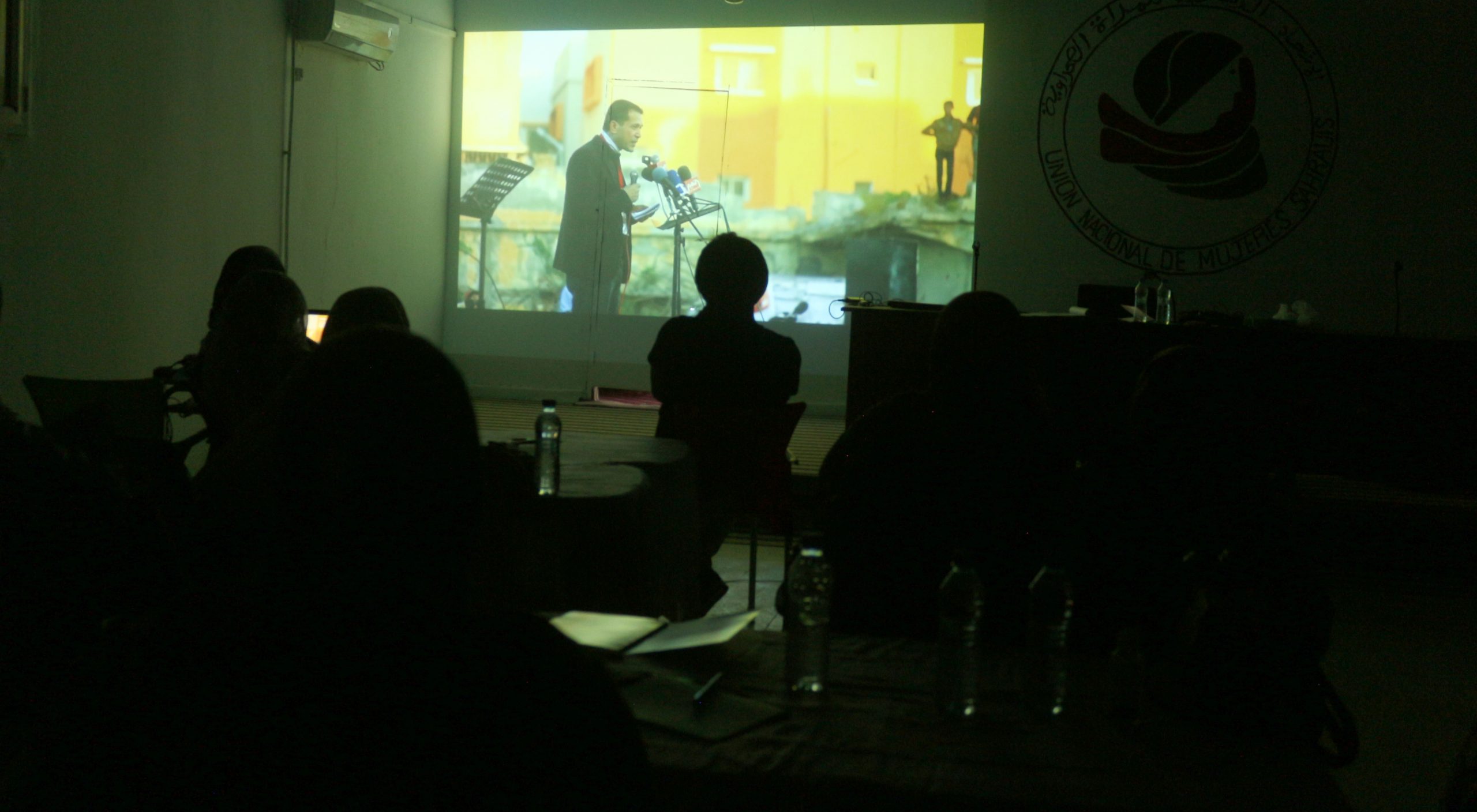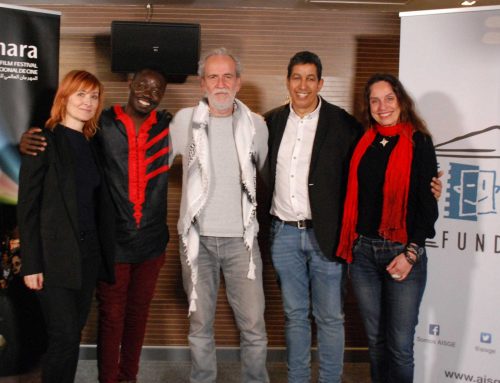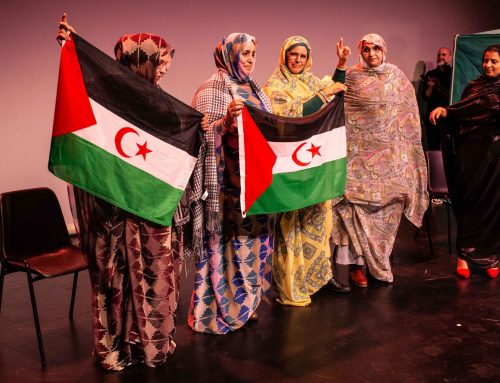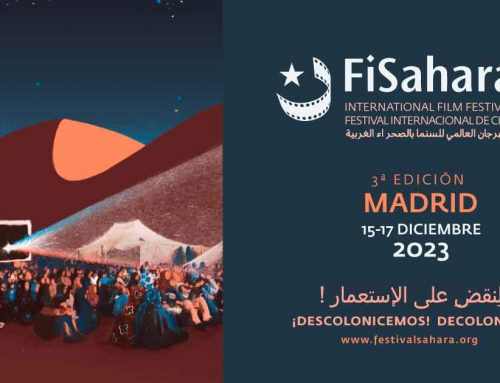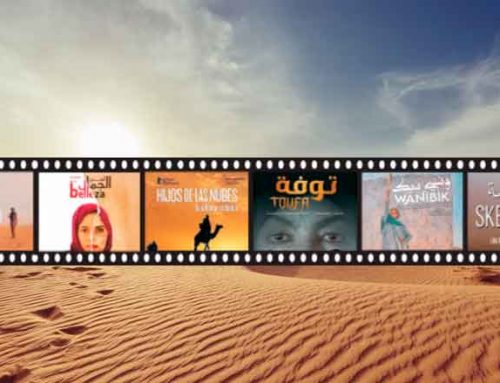What is your idea of cinema? This was the question that kicked off the first day of the impact workshop for 15 Sahrawi women community leaders, How to Organize Screenings and Debates for Social Impact, organized by FiSahara, Nomads HRC and the National Union of Sahrawi Women (UNMS), with support from Movies That Matter.
Using all available preventative Covid-19 health measures (face masks, hand sanitizer, individual materials and social distancing), the first session of the workshop, an introduction to the use of film as a tool for community discussions, kicked off this Sunday October 25th at the UNMS headquarters, in the Bojador refugee camp. All participants, trainers, organizers and technical experts in the workshop are women.
Film is a relatively new art form and tool in Western Sahara, where culture is mostly transmitted through oral traditions. The first session delved into the artistic and cultural value of cinema and explored how film can also act as a catalyst for discussions that can produce profound social change through education and outreach.
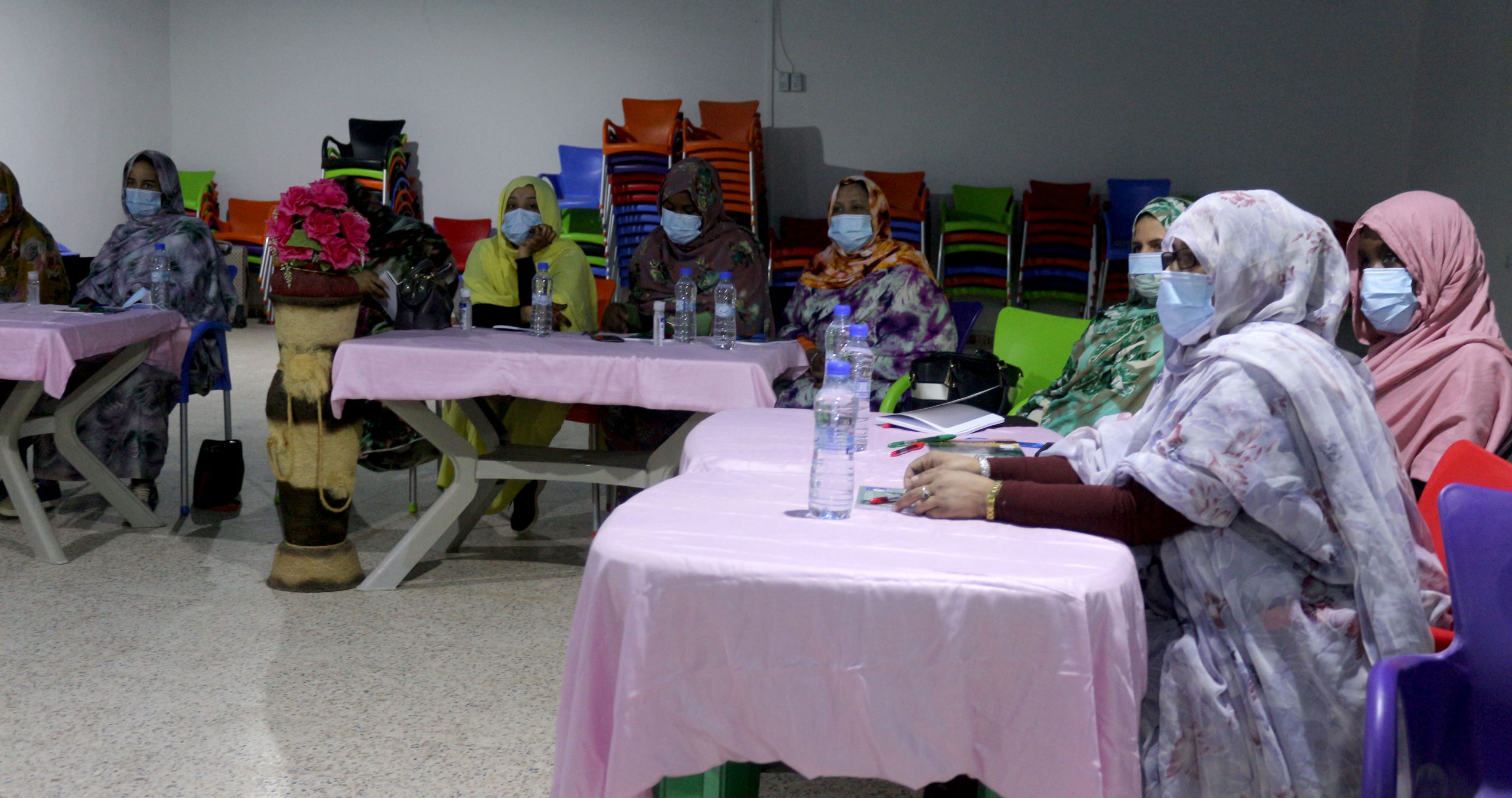
Throughout the session and with the guidance of the trainers, participants discussed the power of cinema and its capacity to establish a meaningful dialogue both inside communities and between cultures of different peoples, crossing spatial and temporal borders. Screenings included:
- The Others. A short documentary by the Karama Beirut Festival on how screenings and debates can break down stereotypes that lead to the social rejection of refugees. The festival brought together young Lebanese with Syrian and Palestinian refugees to produce rapprochement and mutual understanding.
- The Making of FiSahara 2013 and FiSahara 2014, as well as the trailer for the Gaza Film and Human Rights Red Carpet Festival, whose 2014 edition was held in the ruins of the massive Israeli bombings that destroyed Gaza months before. The trailers showed how film screenings can both provide much-needed spaces and raise awareness about communities facing conflict, devastation and international neglect.
Filmmaker Brahim Chagaf, a graduate of the Abidin Kaid Saleh Audiovisual Training School (EFA) and now one of its main instructors, introduced participants to the concept of Sahrawi cinematography, a new art form. Brahim shared his personal experience at the school and beyond — how young Sahrawis are making films in the refugee camps despite the scarcity of resources, as well as the importance of using this new tool to preserve and transmit the culture, history and struggle of the Sahrawi people.
Chagaf, director of well-known shorts such as Toufa, was moved by the response of the women and their immediate embrace of Sahrawi cinema.
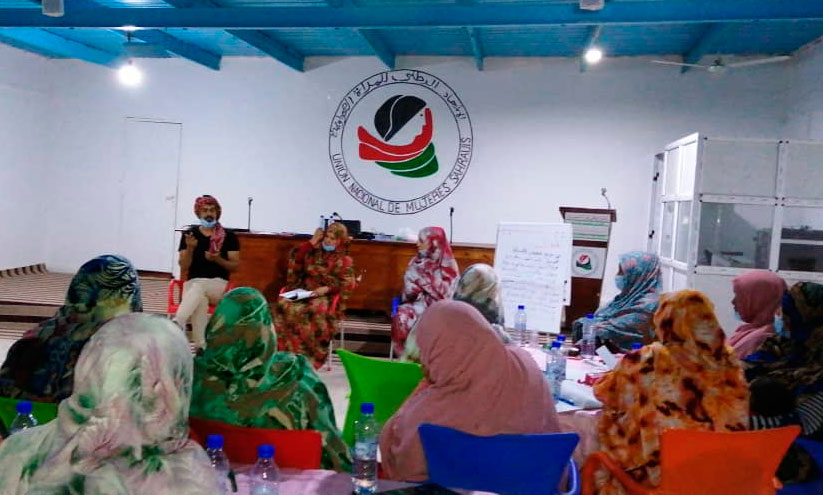
Brahim Chagaf during the discussion with the workshop participants.
Projectionist and technical trainer for the workshop Liha Abderrahman, also a graduate of EFA Abidin Kaid Saleh, shared her own experience and the difficulties she has experienced as a woman filmmaker, given Sahrawi women’s multiple responsibilities as carers and providers in their homes. She and Brahim belong to the first-ever group of Sahrawi students who studied at the film school, and she shared her own difficulties as a woman trying to break into a completely new field of work.
One participant concluded: “This session brought us closer to the true nature of cinema for the Sahrawi community, as well as its importance, objectives and ways of promoting it so that it is successful.”

